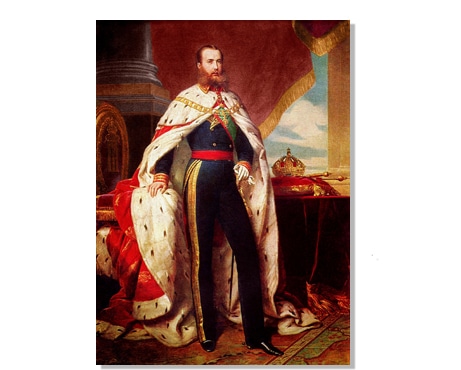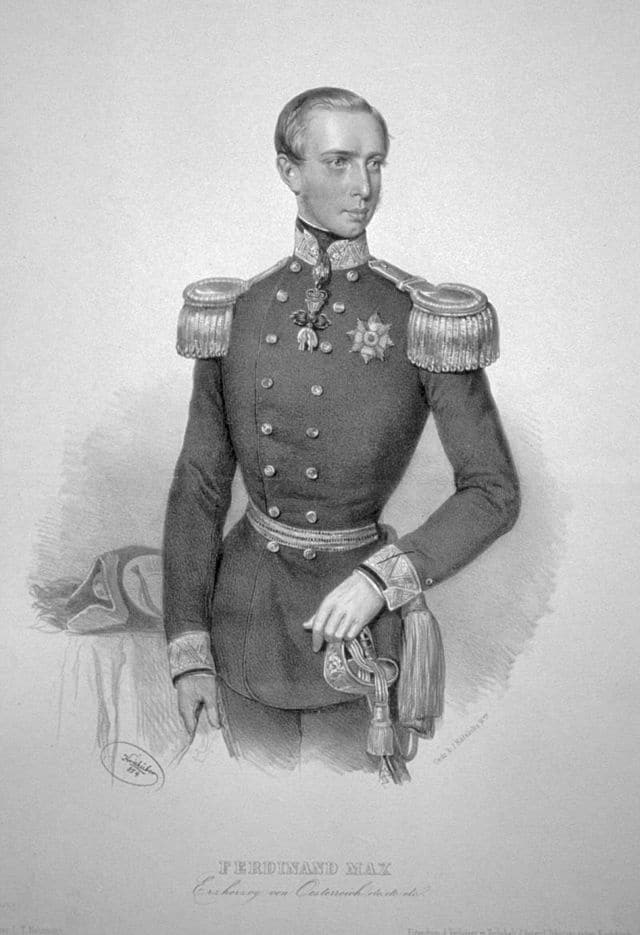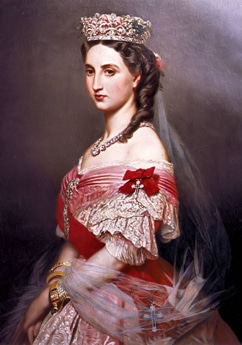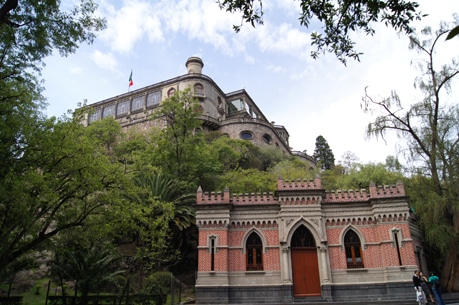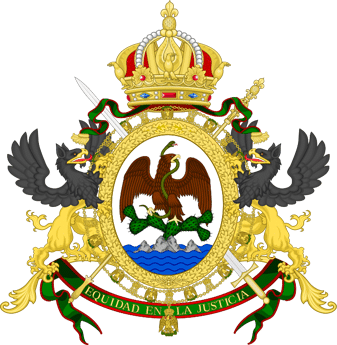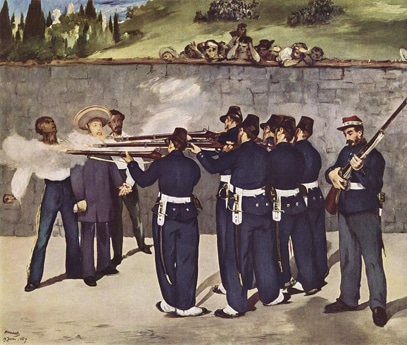Maximilian of Mexico was born in Vienna, Austria in 1832 as Ferdinand Maximilian Joseph. He was the grandson of Austrian emperor, Francis II, and younger brother of Franz Joseph who became Emperor of Austria, Apostolic King of Hungary, and President of the German Confederation.
Maximilian’s story, in contrast to the two, is a gripping tragedy of a caring ruler living in deeply troublesome and problematic circumstances.
But Maximilian’s life didn’t start off particularly tragic. In fact, he had as normal of a childhood as a prince could possibly have.
He had a liberal metropolitan education, he loved riding horses, and he often traveled throughout Europe.
From a very early age he knew what it meant for him to be a second child. He would spend a lot of his time attempting to surpass his older brother and prove himself worthy and deserving of the throne.
He quickly learned how to fluently speak German, English, Hungarian, Slavic and Spanish in order to compete with his brother.
He was extremely bright and studious, witty and charismatic.
Unfortunately, that mix of great charm, jealousy, and competitiveness would put a massive strain on his relationship with his brother and they would hardly even remain friends.
In 1848 the King stepped down so that Maximilian’s brother, Franz Joseph I, could step up during a period of revolutions across Europe.
Maximilian accompanied his brother in his attempts to end these revolutions throughout the Austrian Empire. It wasn’t until a year later, in 1849 that these revolutions were stamped out in Austria.
Hundreds of rebels were executed and thousands were imprisoned. Maximilian saw this as horrific, barbaric, and senseless.
He was openly against all of this monarchical brutality and stated: “We call our age the Age of Enlightenment, but there are cities in Europe, where, in the future, men will look back in horror and amazement at the injustice of tribunals, which in a spirit of vengeance condemned to death those whose only crime lay in wanting something different to the arbitrary rule of governments which placed themselves above the law”.
It’s safe to say that Maximilian was a voice of power for the silenced early on.
The following years before his appointment as Emperor of Mexico were very busy ones. He became a lieutenant of the Navy and then commander in chief; under him, the Navy gained great influential support from the Imperial family and drew public attention.
He modernized the naval forces and was very involved in creating naval ports in Austria. One of his proudest moments, being highly interested in Science, was that he initiated and led an expedition that became the first Austrian warship to circumnavigate the entire globe.
On July 27th, 1857 in Brussels Maximilian married his second cousin, Princess Charlotte of Belgium who would change her name to Carlota once they arrived in Mexico. They had no children together, but lived happily as Austrian regents in Milan and Viceroys of Lombardy-Venetia until Maximilian’s brother, Emperor Franz Josef, dismissed Maximilian because he was deeply angered by his liberal policies.
This turned out to be a big mistake, and shortly after he was dismissed, Austria lost control of most of Italy, only severing the relationship with his brother more.
In 1859, Mexican monarchists with a proposal to become Emperor of Mexico first approached Maximilian.
He was asked to take the throne in 1861, but he quickly refused and instead journeyed to Brazil. Soon after, France took over in Mexico and he reconsidered at the invitation from Napoleon III.
He accepted the crown in 1863, but was purposely misinformed by Napoleon that there had been a vote from the people to accept him as their ruler.
He also had no idea until the day before he departed that at the acceptance of the Mexican throne he had lost all nobility rights in Austria, putting him in a very tough situation if he were ever to retract from the Mexican throne.
At his arrival in Veracruz on May 21st 1864, he received almost no welcome from the townspeople, but he was still full of hopes and dreams of changing and improving Mexico. …..continues
Though he had the backing of Napoleon III and Mexican conservatives, liberals led by the very famous President Benito Juarez refused to recognize him as Emperor. This caused continuous warfare between Mexicans and the French.
The Emperor and Empress chose to reside in the beautiful Chapultepec Castle, located on top of a massive hill in Mexico City where Aztec emperors used to retreat. Maximilian ordered a very wide avenue to link Chapultepec to the middle of the city.
Today it is still Mexico’s most famous boulevard, Paseo de la Reforma, modeled almost identically to the Ringstrasse in Vienna.
Maximilian was horrified at the wealth inequality in Mexico and the conditions in which the poor lived in comparison to the wealthy.
He soon realized that the people of Mexico had not voted him in as Emperor and he completely changed the tone of his ruling in favor of the lower classes.
The Empress began to throw parties to raise money for the poor and one of Maximilians first acts, as emperor was to restrict working hours and abolish child labor completely. He rid all debts for peasants who owed over 10 pesos, restored communal property, and forbade all forms of corporal punishment.
Surprisingly enough, Maximilian agreed with President Juarez’s administration on many things and upheld many liberal policies such as land reforms, religious freedom, and the right to vote for all which was met with great dismay from his conservative allies.
He tried to work with Juarez and offered him the post of Prime Minister if he stayed faithful to the crown, but when Juarez refused, Maximilian ordered all captured followers of Juarez to be executed.
After the American Civil war, the US pressured Napoleon III to end the support of Maximilian and retreat the French troops in Mexico. The US began to supply arms to Juarez’s allies, and the thought of US involvement caused many of Maximilian’s supporters to leave Mexico City and abandon him.
More than eleven thousand of Juarez’s supporters were executed, and this only put Maximilian in a worse position.
By 1866 Napoleon withdrew his troops under the Monroe Doctrine and didn’t even bother informing Maximilian.
Carlota went to Europe to seek support for her husband in Paris, Vienna, and Rome but had no success. She had an emotional collapse, spiraled into insanity, and never returned to Mexico.
Napoleon then urged Maximilian to abandon Mexico, but he again refused to desert his followers. Some of his loyal generals vowed to raise an army and not go down without a fight. Maximilian fought with his own army of 8,000 Imperial loyalists.
The cities downfall came on May 15th, 1867 and Maximilian was captured the next morning. He was sentenced to death. Many monarchs across Europe and prominent liberal figures sent telegrams and letters to Mexico asking them to reconsider and spare Maximilian’s life.
Although Juarez was personally fond of Maximilian, he refused to commute the sentence because of the number of Mexicans who had been killed fighting Maximilian’s forces.
He believed it to be necessary to send a message that Mexico would not allow for foreign powers to rule there.
On the morning of July 19th, 1875 Maximilian was executed by a firing squad. His last words were all in Spanish to signify his loyalty to the Mexican people despite his execution and he paid his executioners in Gold to not shoot him in the head so that his mother could see his face again.
His last words were, “I forgive everyone, and I ask everyone to forgive me. May my blood, which is about to be shed, be for the good of the country. Viva Mexico, viva la independencia!” or “Long live Mexico! Long live the independence!” T
Two of his generals who were executed with him died shouting “Viva el Emperador” or “Long live the emperor”. His wife, Carlota, never accepted his death and became increasingly emotionally and psychologically unstable.
Maximilian was a great liberal leader who never abandoned his followers and had a true need and desire to help the Mexican people, especially the poor and under-represented.
His position and circumstances were not ideal, his life and downfall were tragic, not all of his decisions were especially well thought out or long-sighted, but his legacy lives on as one of the most truly kind-hearted and socially active monarchs in history.

